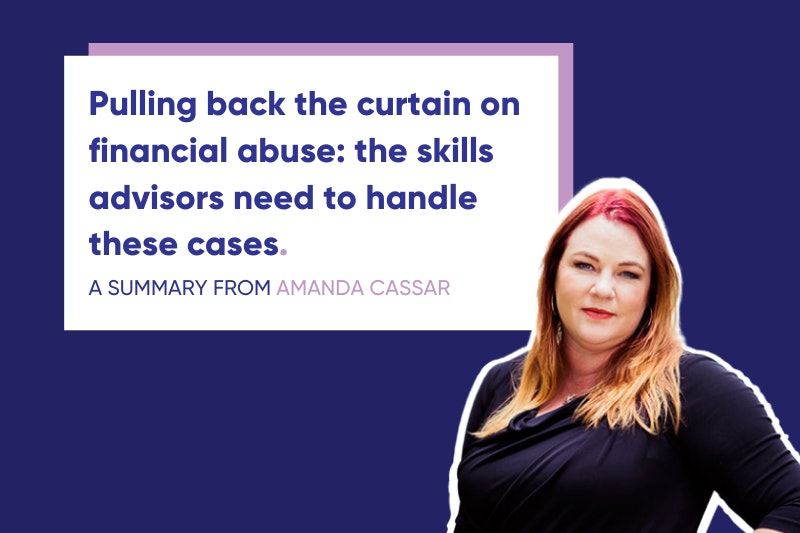Learn how to manage your Financial Stress
As a Financial Advisor, we often have clients come to see us without their spouses, for investment or financial planning session. But then, there’s also many that never visit without their other half.
So, having problems getting out of debt is our number one challenge with couples, and unfortunately has a severe impact their relationship. And, it’s not easy to experience the emotional turmoil that financial duress can have. Perhaps fights about money have become so regular that marriage is hanging by a thread and may not stand the test of time.
Key Takeaways
- Research shows that more than half of marriages start off with a burden of debt.
- Making use of a Budget Planner, recognising and practising discretional spending, and boosting income are typical ways that a couple can reduce, and in some cases, eliminate debt and regain their financial control.
- In addition, couples can stop having arguments about finances by scheduling a weekly money “date” to discuss finances and sharing their family financial histories and experiences in a safe environment without judgement.
- Exercise compassion and patience toward your partner to reverse any negative historical experiences. This will enable positive emotions and thought patterns when having a conversation about your financial concerns.
Hidden Spending and
Ok so we’ve all done it… don’t lie! Hidden spending habits, which are so justifiable in one’s own mindset. We all tell ourselves “it was on sale. So, I’m practically saving money!”. Or the common fib used by some are “oh this old thing? It’s been in my wardrobe for ages!” Meanwhile, your partner is probably questioning their own sanity thinking their memory is playing tricks. Or, they know you’re lying and are less than impressed.
 It’s paramount to have aligned goals with your partner when it comes to getting out of debt and increasing savings. Make it a goal to take the emotion out of money. Do you feel better when you have purchased something for yourself? It is giving oneself a good ‘pat on the back’ for working so hard. We are bombarded with marketing everywhere we turn. Billboards and advertising constantly play on our emotions. They tell us subliminally “if you buy this product, you will feel better about yourself.” Or “this will give people a better perception of how successful you are”.
It’s paramount to have aligned goals with your partner when it comes to getting out of debt and increasing savings. Make it a goal to take the emotion out of money. Do you feel better when you have purchased something for yourself? It is giving oneself a good ‘pat on the back’ for working so hard. We are bombarded with marketing everywhere we turn. Billboards and advertising constantly play on our emotions. They tell us subliminally “if you buy this product, you will feel better about yourself.” Or “this will give people a better perception of how successful you are”.
Today, people seem to value being recognised as being ‘successful’ or to be known as someone who is important, or of value. Individuals may feel that if they drive a certain car or can afford designer labels they will gain more respect by others. There is nothing wrong with having such material possessions or the creature comforts in life, however, there needs to be a healthy balance. It is easy to be trapped into living beyond ones means.
Unaligned Values or Goals
Sometimes we come across instances where one party in the relationship might spend more freely than the other, this can be met with frustration and irritation by the other spouse. It’s like watching a pressure-cooker on the verge of exploding… they reach a breaking-point and the emotional cracks rise to the surface to cause an eruption of some kind. Hurtful things can be said, which cannot be unheard, and it just snowballs from there.
If this sounds all too familiar, please know that you are not alone. According to a 2018 Fidelity study, more than half of couples getting married start off in the red. Even worse, 40% of indebted couples admitted it had a negative impact on their relationship.
Gold Coast based Financial Adviser Amanda Cassar of Wealth Planning Partners states: “Being a Financial Advisor, I have seen and experienced first-hand the negative tension that debt can have on a relationship. After spending time with clients, it’s clear to see that most couples want to save their relationship. That’s where we come in – We take the first step to initiate a tailored financial / investment plan to assist and alleviate their financial burden resulting in healthier financial life.”
Minimising Spending and Cutting Bad Habits
Speak with your partner and Financial Advisor about putting together a financial or investment plan. Set-up a clear budget that pinpoints where you can cut back on spending. Eliminate things like subscriptions and frequent dinners or takeaway. Cut back on bought lunches at work and the good old coffee habit. It also pays to take advantage of free facilities. Instead of joining a gym, make use of the free gym equipment down at the beach. Go for walks. Hey, even ride your bike to work if you are able to. Then you save on petrol too! Some measures may only be for the short time.

Create a Family Budget Together
Also, establish a grocery budget, and redirect any surplus into another account to be put towards debt repayments. Sometimes lowering spending isn’t enough. An increase in income may be required. If you’re a business owner, you might need to take on an extra client or two to give you that extra boost in income. Perhaps even a second job could help. Sell of unused items or monetise your side hustle.
And, set up a direct payment through your bank account to automate bill payments. It helps to know that your credit card and other payments are on a consistent scheduled date, that way you can just focus on making sure that the money is in your account ready at the time. It may be easier to break up payments into your pay cycle rather than waiting for monthly or quarterly invoices.
The Winning Factor!
The real breakthrough and victory for most couples is the fact that they start communicating more about their spending, savings goals, aspirations, and commenced planning for their financial future. Money goes from being a subject they fought about, to one they enjoyed spending time discussing without shame or blame.
To get to this point I highly recommend taking the time out to implement the following four simple rules:
-
Schedule weekly money dates
Weekly money dates will allow you and your partner to come into the conversation prepared, unthreatened, and ready to make progress. If these talks happen regularly, they won’t be left until something has gone completely wrong and off-track. Tempers and arguments are less-likely to get out-of-hand and are discussed more calmly and encourage growth and respect.
-
Share previous experiences about your family financial history with your partner
Don’t hide your previous experiences from your partner when it comes to your financial history. Learning how respective families talked about money and how these influences impact your current relationship. If one partner thinks it’s a taboo topic and normal to keep their spending secret, while the other wants expenses out in the open, there are bound to be expensive and painful miscommunications yet to be had. Go into the conversation with an open mind, find out what’s normal and what’s not in your partner’s eyes. What you thought was a bad-natured or deceitful act may have been a seemingly “normal” money habit to them, or vice versa.
-
Try to be more compassionate and exercise patience
Money issues are a bit of a touchy and sensitive subject and can impede on some peoples privacy whilst raising some deeply entrenched emotions to the forefront. By empathising with one another and allowing permission to admit past mistakes free of shame, this will welcome and encourage planning for the future. Remember that when dealing with personal finance, these issues touch more than a balance sheet. Pride, shame, and self-worth can easily be tangled up in discussions about money, so tread carefully and respectfully.
-
Create positive associations
So, by talking openly about financial aspirations and goals, you might find that a lot of fun was missing in your relationship when money was a source of stress. Once a plan is in place and clients see a viable path with managing their money, they actually enjoy their financial chats, since they now represented the positive possibilities awaiting them in the future, rather than feeling guilty and ashamed for not being where they want to be financially.
Time to manage financial stress
Also, it is extremely rewarding when you can see progress you make. This doesn’t mean every couple will have the same experience. But, they will have a better chance if they make the effort to start. Address conversations about money from an honest, open, and loving place. It takes sacrifice, commitment, checking your pride when necessary. Have a determination to follow a structured process to give you the best chance of success…
And, I’ve seen it happen, that’s why we are here! Reach out to the Gold Coast financial planning team at Wealth Planning Partners to chat further about your situation. We’d be happy to be an impartial third party in your money chats.





 January 18, 2025
January 18, 2025 




















